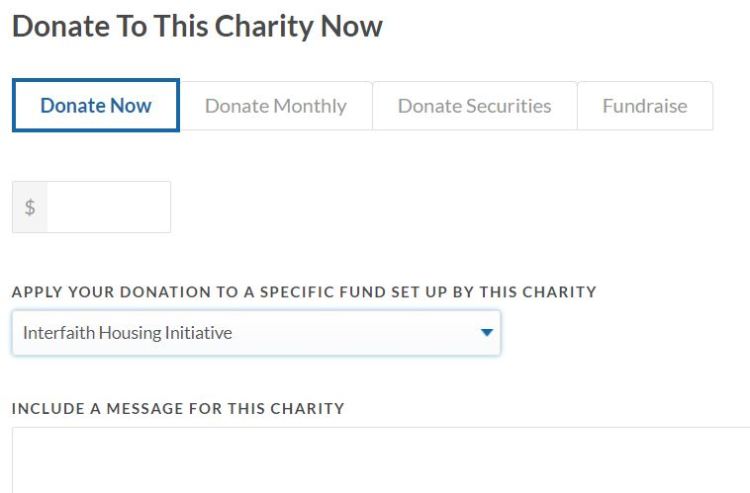Beginning in 2019, CRIHI is investing deeply in local area networks as a way for faith communities to work together in addressing local needs; especially in the area of affordable and supportive housing.
Background: Faith community networks have some strong history in Edmonton already, with local collaborations generating and sustaining some very powerful efforts such as those led by E4C, Jasper Place Wellness Centre, and Islamic Family Services Society of Alberta, among many others.
One of CRIHI’s passions is to provide opportunity for people of many faiths to put boots on the ground together in addressing homelessness and other challenges related to poverty. We believe this move into supporting faith and community work in the local context will create many more such opportunities. This work also has the potential for great impact as it is shaped by forming long term relationships, deepening community investments and connection, and informed engagement with local neighbours and community partners.
Where will we start?
As this is a new field of work for us, we are only able to begin working in a few parts of the city. in some cases, we may be coming alongside local networks that are already working well. In others we may be starting something new. The five areas we have decided to begin with are all in South Edmonton.
- Millwoods
- Greater Hardisty (Capilano/Goldbar)
- Riverbend/Terwillegar
- Strathcona
- Greenfield south through Blue Quill
In each of these areas we will gather local people of faith (welcoming people of every faith or no faith) to the table together to discuss how we can work together in addressing local needs. We will also have an eye to engaging local community partners such as community leagues, businesses, or service providers.
These local networks will…
- Meet together regularly in order to facilitate a journey of learning and engagement in their local setting. (perhaps taking turns hosting in different spaces to encourage greater ownership and equal buy-in)
- Learn together by engaging with local social workers and community leaders to understand the needs and dynamics of the local community.
- Work together in responding to local needs. That work may take some of the following directions, some of which will be suggested by CRIHI in our role as a support.
What might we do together? Here are some ideas…
- Identifying and advocating for needed services and resources locally.
- Addressing local fears, conflict and tension centred on new neighbours or new housing by hosting participatory and relational community workshops on topics such as: Mental health, Addictions, Affordable Housing, Disabilities, Trauma, Foster Care, Neighbouring, or supporting people transitioning out of correctional facilities. (Venues will ideally be places recognized by the local area as safe gathering places for any community member; ie. community halls, or school gymnasiums, or in some case faith community facilities that have that reputation locally.)
- Serving and working together visibly with shared events and projects; such as having the youth groups from many traditions work together to fundraise and help build a playground.
- Supporting and participating in community consultation efforts connected to new housing developments. (Encouraging good process and constructive engagement)
- Finding land for affordable or supportive housing. Perhaps an apartment complex to repurpose, or some vacant land they could look at together; fundraising together to support a project.
- Confronting Economic, Faith and Cultural barriers in the local community. hosting reconciliation-oriented events such as the blanket exercise or talking circles, or hospitality exchanges where different groups take turns opening their doors so others can learn about what they believe, how they live (and eat!), and what they value.
CRIHI Staff (Interfaith Network Animators) will support this effort by…
- Lining up presenters in areas of interest. (Such as social workers, housing or service providers, Indigenous leaders, and local community or business voices.)
- Supporting event and workshop design and delivery, including facilitation as necessary.
- Highlighting critical areas of need on the housing front.
- Mobilizing and equipping faith communities for constructive participation in local conversations on housing, revitalization, or addressing poverty.
- Encouraging regular engagement with persons with lived experience at all levels of engagement.
- Hosting a skills registry of local people and partners willing to contribute time, money and expertise to areas of local need. (ie. plumbers and carpenters willing to help build housing, or those willing to back eviction prevention measures such as rent subsidies or insect treatment.)
Help us grow these networks by…
- Participating in a CRIHI LAN in your area. If you live in any of the communities listed above, come join us in the work! Please contact CRIHI’s Interfaith Network Animator, Mike Van Boom at: mike@interfaithhousing.ca
- Donating funds to help us hire additional Interfaith Network Animators. NEw funding will help us expand and strengthen this network to eventually include other parts of the Edmonton, and even other cities in the Capital Region.
If you would like to donate to this project, you may do that at the following link hosted by CRIHI’s fiscal agent, the Synod of the Anglican Diocese:
Donate to Interfaith Housing – Canada Helps/Anglican Diocese
Instructions: Select Interfaith Housing Initiative in the box as illustrated in the picture below.
